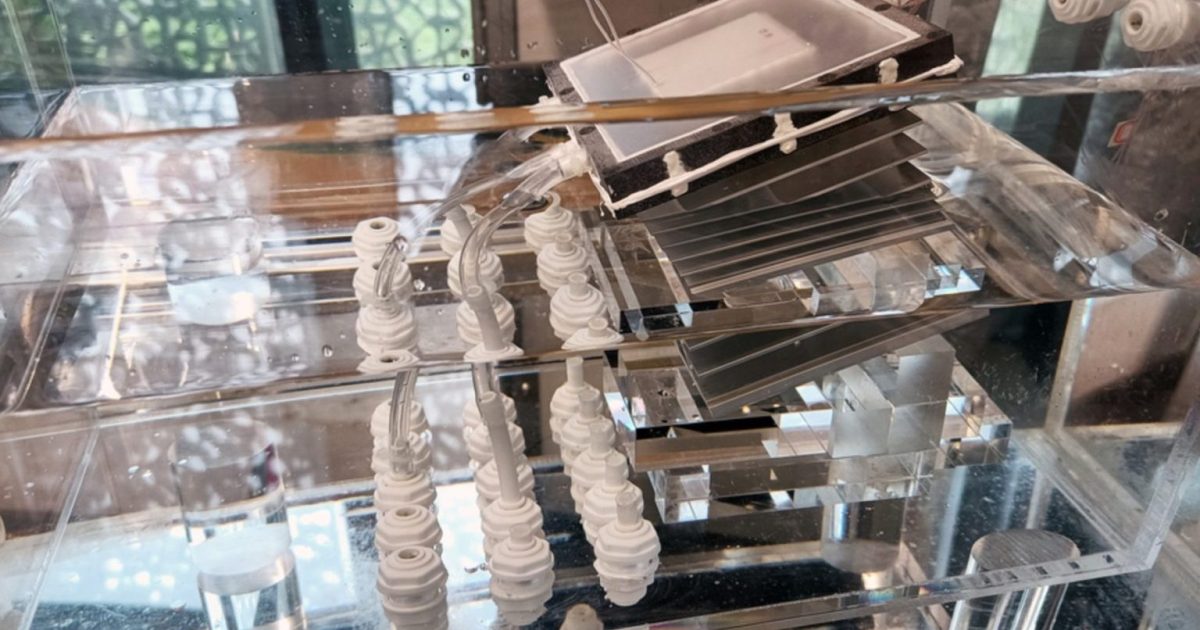MIT engineers and collaborators developed a solar-powered device that avoids salt-clogging issues of other designs.
With my (admittedly limited) understanding of the topic, extracting the water from ocean water is a relatively simple process.
The problem is what do you do with the brine afterwards. The process featured in the article makes it harder for the brine to clog the system, which is admittedly an important step. But you can’t put the brine back into the ocean without risking killing local wildlife.
And I’m not under the impression that there are any practical uses for brine, at least not at that scale.
Maybe have ocean voyaging ships (e.g. container ships) do controlled release of brine through their journey?
Though probably no way of achieving this via current economic and legal systems. Even if attempted today, ships would probably be incentivized to dump the entire payload the moment they cross into internal waters.
There are no perfect solutions.
Of course, we’ll put the brine back into the ocean. We can run pipelines out miles to disperse the brine and dilute it. We’ll need regulation to ensure this, because no capitalist corporation will do anything that cuts into profits without regulations forcing it.
Second only to air, fresh water is what we all need. We’ll do what we must to have it. Of this I’m certain.
Would it be posible to salinate the waste water that goes back to the ocean from treatment plants?
Small question (perhaps dumb on my part as I haven’t slept yet), do these desalination system remove other chemicals such as PFAS, arsenic, lead? I think I read that they use nanofiltration membranes to remove almost everything. How about molecules that are smaller than water (H₂O)? Do they get filtered?
Most molecules aren’t smaller than water, however filters that are small enough to only let water through clog pretty quickly. That said, most heavy metals and salts won’t evaporate in a decent still (which is good, because atoms and ions are often smaller than water). I’m not sure about PFAS and microplastics, but I expect they don’t evaporate.
Big box with pipe pointing up in the middle that exits the box through the bottom to reach a collection tank
Fill with salt water without going past the pipe opening
Add transparent lid with a slope towards the middle so the water condenses and drops in the pipe
Go do whatever you want all day, you’ve got a passive drinking water creator and nothing to clog since solids just accumulate at the bottom and can be scooped out as needed.
Scooped out and put where?
Most of it is salt, I know many places where they would gladly buy it for winter road maintenance.
Cheaper than tap but at a 500% markup for CoNvEnIeNcE! You know that if it’s cheap, the large black scarf buckets (c*pitalists) will come in and force the prices to go up until nobody can afford it.
Yeah, no. It won’t be cheaper than tap water. The amount of energy required for desalination, clogging or no, is an additional cost on top of what you need to do to get water drinkable with non salinated water. So no matter the energy source, this cost has to be factored in and that will automatically make it more expensive. No free lunches in physics.
My presumption is that the desalinated water might be cheaper than tap, but would still require further processing to be considered potable, which would raise the price on par or above conventionally sourced tap water. I imagine there’s a lot of costal areas though with ready access to saltwater and minimal access to freshwater where it’s worthwhile.
It’s a solar still with running water. That’s it.
How tf did it take MIT engineers to figure that out?
It is explained in the link.
A hint, just after the title: “MIT engineers and collaborators developed a solar-powered device that avoids salt-clogging issues of other designs.”
Yeah, they developed a solar still with running water. That’s it. It’s a solar still that uses moving water to get rid of the salt.







